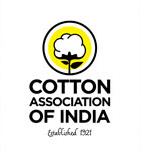Government of India - Ministry of Agriculture
08-March-2013 15:53 IST
The Government of India is implementing a Central Sector Scheme “Monitoring of Pesticide Residues at National Level” under which samples of various food commodities including rice, wheat, vegetables, fruits and water are analyzed for the presence of pesticides residues. The pesticide residue data generated under the scheme are shared with State Governments and concerned Ministries/Organizations to initiate the corrective action for judicious and proper use of pesticides on crops with an Integrated Pest Management approach and to generate awareness amongst farmers. The Government of India is also promoting Integrated Pest Management (IPM) through Farmers Field School focusing on safe, judicious and need based use of approved pesticides and other pest management practices.
As per the provisions of Insecticides Act, 1968 and rules framed thereunder, manufacturers of pesticides are required to provide a label and leaflet with each pack having details of directions for use, dose, dilution, waiting period and safety precautions. In the Farmers Field Schools conducted under Integrated Pest Management farmers are advised to adhere to the directions given in label and leaflets. Pesticide manufacturers/associations also provide guidance to farmers on safe and judicious use of pesticides.
At the national level, impact of IPM has been observed through the following indicators:-
| · | Use of bio-pesticides/neem based pesticides increased from 123 MT during 1994-95 to 8,110 MT during 2011-12. |
| · | Over all consumption of chemical pesticide in the country has reduced from 75,033 MT (Tech. Grade) during 1990-91 to 50,583 MT (T.G.) during 2011-12. |
This information was given today by Minister of State for Agriculture and Food Processing Industries, Shri Tariq Anwar in a written reply to Rajya Sabha questions.
MP: DS: CP: farm field schools (rajya) 8.3.2013 (Source: PIB Release)
